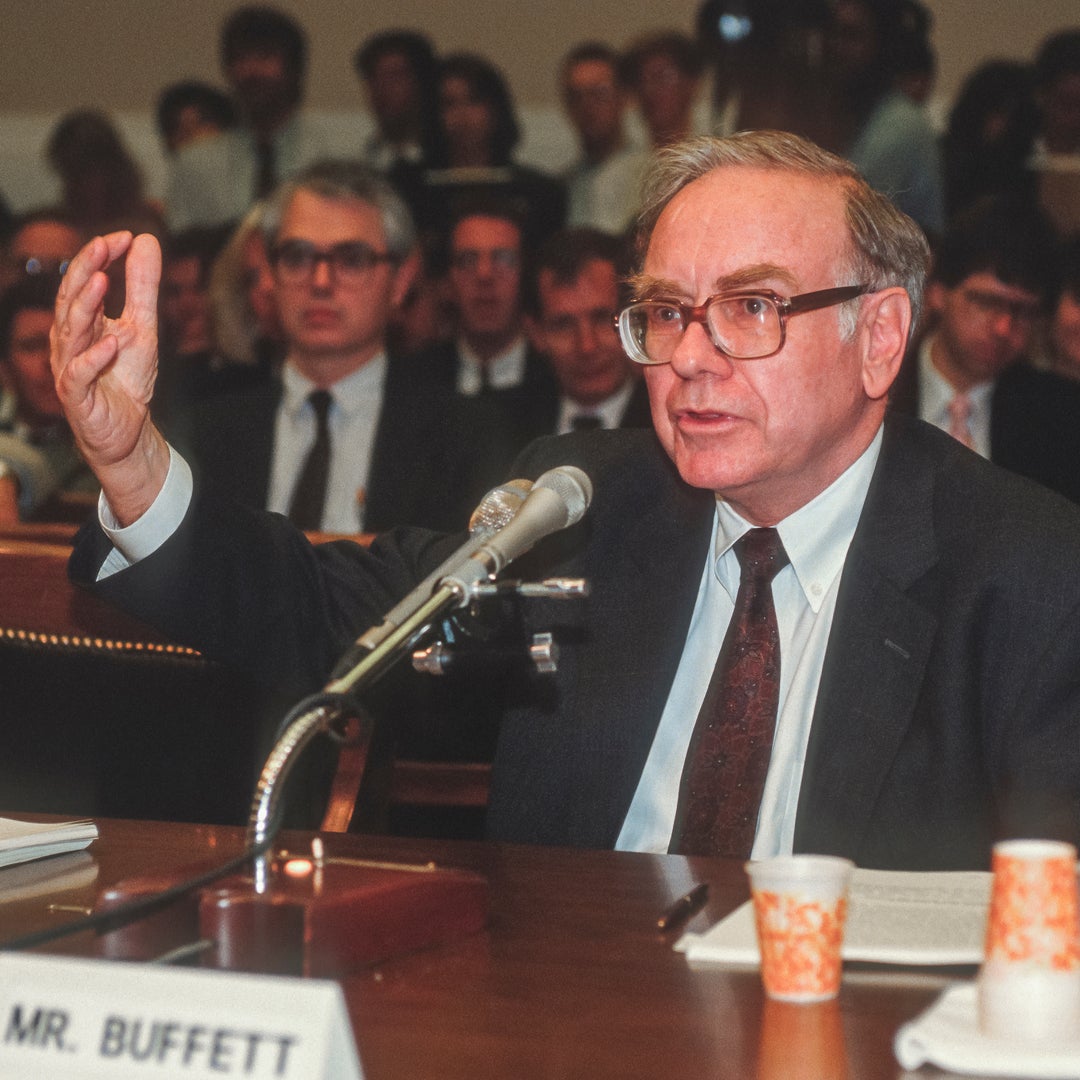Warren Buffett Investment Advice: 3 Helpful Tips

For decades, Warren Buffett has provided investors with a sense of restraint and wisdom, especially when the stock market seems unpredictable.
While we can’t use history to tell us what’s going to happen in the future, looking back on past periods of turbulence can help with perspective. When 2014 started, the last bull market was in the midst of a particularly strong run, having surged 16 of 19 months. Then, that January, the S&P 500 tumbled nearly 5.6% in less than two weeks. Shortly thereafter, Buffett revealed for the first time how he’s planning to invest some of his money for the long term.
“I laid out what I thought the average person who’s not an expert on stocks should do,” he told Becky Quick in an interview on CNBC’s “Squawk Box” in 2014.
Here are the Oracle of Omaha’s tips for long-term investors, which have remained consistent throughout his decades-long investing career.
‘Keep your costs minimal’
About seven years ago, Buffett detailed the strategy for his money after his death: He has instructed the trustee in charge of his estate to invest 90% of his money in a very low-fee stock index fund and the remaining 10% into short-term government bonds.
Index funds are a type of investment that mimic the performance of a particular market benchmark, like the S&P 500 or the Dow Jones Industrial Average, both of which track the largest U.S. companies.
For decades, Buffett has championed index funds. The Oracle of Omaha reiterated his praise at his company’s annual meeting in May of 2020, saying: “In my view, for most people, the best thing to do is to” own an index fund.
The fact that index funds are low-cost is one of the main reasons why Buffett finds them to be attractive. “Keeping costs to a minimum is enormously important in investing whether it’s farms or buildings in New York. But particularly in stocks,” he said during the same interview.
‘Ignore the chatter’ and focus on your investment plan
Index funds are also an attractive choice for average investors because they allow you to “ignore the chatter,” Buffett wrote in 2014.
Index funds are composed of a diversified selection of many stocks, which frees investors from trying to follow the news and accurately pick winners.
Feeling blindsided by a sell-off isn’t atypical: “The light can at any time go from green to red without pausing at yellow,” Buffett famously said to Berkshire Hathaway shareholders in 2017.
That’s one of the reasons it’s smart for day-to-day events not to dictate your long-term investing strategy: “I watch everything. But I don’t do it to make specific investment decisions,” Buffett said on CNBC in 2014. “I wanna know what’s going on. But I also don’t think that I can make money by predicting what’s gonna go on next week or next month. I do think I can make money by predicting what’s gonna happen in 10 years.”
Buffett used his own reaction to the 2008 financial crisis to make his case for parking money in an index fund.
Even though a severe recession was brewing, he never considered selling his investments because he was investing for the long term. “Why would I have sold my stocks that were small participations in wonderful businesses? True, any one of them might eventually disappoint, but as a group they were certain to do well,” he wrote in his 2014 shareholder letter.
Sticking with his plan paid off: In March 2009 the S&P 500 entered one of its best and longest bull markets in history, which ended last year. Over even longer periods of time, the S&P 500 has delivered average annual returns of about 10%.
Let’s say you invested $500 in S&P 500 on the day Buffett suggested it, February 28, 2014. That would be worth $1,250 as of December 21, 2021.
That works out to an annualized return of over 14% or a total return of 1,455%, according to Howard Silverblatt, senior index analyst at S&P Dow Jones Indices. (A total return assumes you reinvested the dividends — a portion of a company’s or fund operator’s profit — you earned each quarter, which is an easy way to grow the value of your portfolio.)
‘Invest in stocks as you would in a farm’
Buffett believes the average investor would be better off thinking, “I bought a business today,” rather than a stock. To take the analogy even further, he recommended in his 2014 shareholder letter: “Invest in stocks as you would in a farm.”
Changing your perspective on investing can help you focus on the long term. “Nobody buys a farm based on whether they think it’s going to rain next year,” Buffett said on CNBC’s “Squawk Box” in 2018. “They buy it because they think it’s a good investment over 10 or 20 years.”
The problem is, because investors can “make decisions every second with stocks,” as opposed to investing in a physical entity like stores or farms, “they think an investment in stocks is different than an investment in a business. But it isn’t,” he said in the same interview.
Buying into companies because you want to own them for years or decades to come is a strategy that doesn’t change because of short-term events — even the current coronavirus pandemic and economic recession.
“Now coronavirus is front and center. Something else will be front and center six months from now and a year from now,” Buffett told Quick on “Squawk Box” in February of last year. “Real question is, where are these businesses gonna be five and 10 and 20 years from now? Some of them will do sensationally, some of them will disappear. And overall I think America will do very well. You know, it has since 1776.”
Investing involves risk including the possible loss of principal. This content is for informational purposes only and is not intended as investment advice. The strategies and investments discussed may not be suitable for all investors. Carefully consider your financial situation, including investment objective, time horizon, risk tolerance, and fees prior to making any investment decisions.
This content is provided for informational purposes only and is not intended to provide, and should not be relied on for, accounting, legal, or tax advice. Consult your accountant, tax, or legal advisor regarding such matters.
No level of diversification or asset allocation can ensure profits or guarantee against losses.
This material has been presented for informational and educational purposes only. The views expressed in the articles above are generalized and may not be appropriate for all investors. The information contained in this article should not be construed as, and may not be used in connection with, an offer to sell, or a solicitation of an offer to buy or hold, an interest in any security or investment product. There is no guarantee that past performance will recur or result in a positive outcome. Carefully consider your financial situation, including investment objective, time horizon, risk tolerance, and fees prior to making any investment decisions. No level of diversification or asset allocation can ensure profits or guarantee against losses. Article contributors are not affiliated with Acorns Advisers, LLC. and do not provide investment advice to Acorns’ clients. Acorns is not engaged in rendering tax, legal or accounting advice. Please consult a qualified professional for this type of service.








